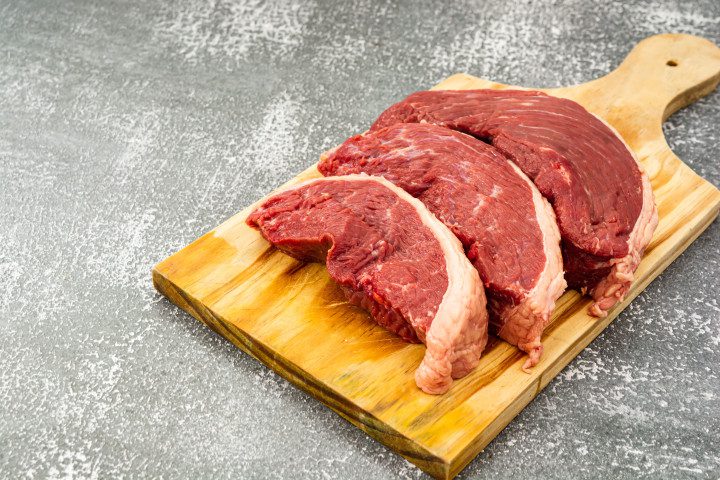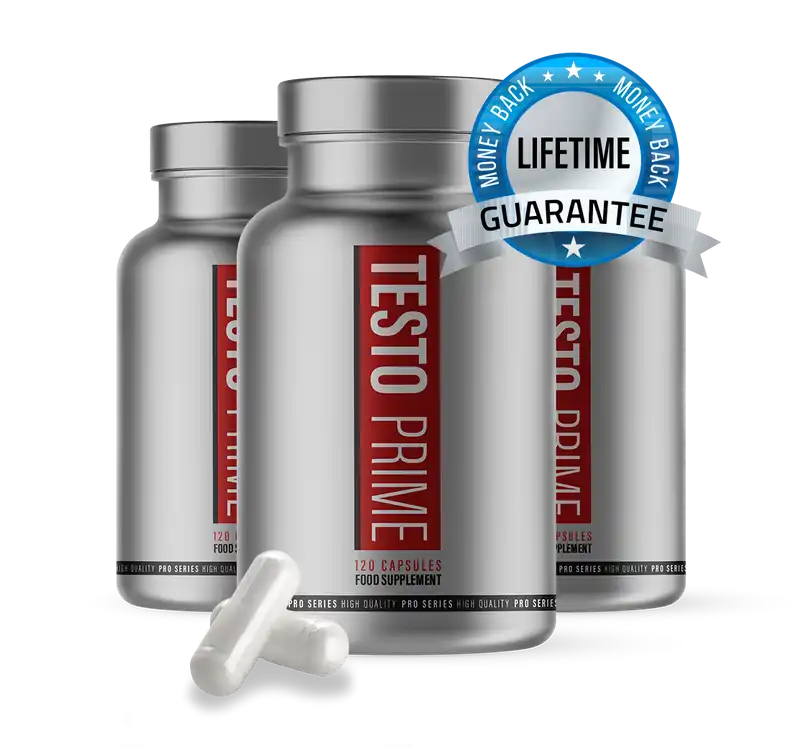The ketogenic diet, popularly known as “keto,” has garnered significant attention in recent years, celebrated for its potential benefits on weight loss, diabetes management, and even neurological health.
But does this low-carb dietary regimen come with a cost?
Specifically, does keto kill your testosterone levels?
In a world where testosterone often snags the spotlight for its crucial role in everything from muscle mass to mood, this is a question worth exploring.
This article dives into the heart of the keto-testosterone conundrum, dissecting scientific studies, analyzing real-world experiences, and offering a balanced perspective on whether “to keto or not to keto” is the question for your testosterone’s sake.
Unearthing the Keto Diet: A Brief Overview

The ketogenic diet, colloquially known as “keto,” is a low-carbohydrate, high-fat diet that has been making the rounds in health and fitness communities worldwide.
The primary goal of the diet is to push your body into a metabolic state known as ketosis.
This is achieved by reducing the intake of carbohydrates drastically and replacing it with fat.
When in ketosis, your body becomes incredibly efficient at burning fat for energy.
It also turns fat into ketones in the liver, which can supply energy for the brain.
Keto diets can cause significant reductions in blood sugar and insulin levels, which, along with the increased ketones, have numerous health benefits.
However, the question remains – does keto decrease testosterone?
As we delve deeper into the intricacies of the ketogenic diet and its impact on the body’s hormonal symphony, we’ll uncover the truth behind this pressing issue.
Testosterone: What’s the Big Deal?
Testosterone often hailed as the quintessential ‘male hormone,’ holds pivotal importance in the human body.
In men, it’s predominantly produced in the testicles and plays a vital role in the development of male reproductive tissues such as testes and prostate.
However, its influence extends far beyond the realms of reproduction. Testosterone contributes to the building of muscle mass, bone density, and body hair growth.
Furthermore, it impacts the distribution of fat in the body and even plays a role in the red blood cell production.
On the emotional front, it significantly affects mood, energy levels, and even cognitive functions.
With such a wide array of roles, it’s clear that testosterone is not merely a ‘big deal,’ but rather an indisputable ‘VIP’ in the body’s hormonal concert.
Now, the question arises – does this VIP kill testosterone production in ment?
Let’s delve deeper to unravel the truth.
The Hormonal Symphony: How Does Keto Affect Hormones?
The human body is akin to a complex orchestra, with hormones playing the leading tune.
Just as one wrong note can throw a symphony into disarray, even minor disruptions in our hormonal balance can trigger significant ramifications for our health and wellbeing.
The ketogenic diet, with its radical shift in macronutrient distribution, undeniably presents a significant change to our body’s usual functioning.
But how exactly does this low-carb, high-fat diet affect our hormones?
In this section, we’ll dissect the interplay between keto and our hormonal concert, particularly focusing on whether keto can put our testosterone on mute.
Let’s delve into the science separate fact from fiction and find out if testosterone can kill testosterone or not!
The Keto-Testosterone Connection and The Impact on Cortisol
The connection between the ketogenic diet and testosterone levels is a topic of ongoing research and debate.
Some studies suggest that a low-carb, high-fat diet like keto can actually boost testosterone levels.
The rationale behind this is that dietary fat intake is essential for testosterone production, and since keto is a high-fat diet, it may potentially enhance testosterone levels.
Furthermore, weight loss achieved through keto can also lead to increased testosterone, as obesity is often linked with lower testosterone levels.
However, it’s not all a testosterone party when it comes to keto.
Other studies contradict these findings, suggesting that the ketogenic diet may actually decrease testosterone levels.
The stress of carb restriction and the shift to ketosis can potentially increase cortisol levels, a hormone that’s inversely related to testosterone.
When cortisol goes up, testosterone might take a dip.
Additionally, long-term adherence to a ketogenic diet can lead to a decrease in Leydig cells, the cells in your testes responsible for producing testosterone.
This can potentially lead to lower testosterone production.
This makes you think that you may in fact conclude that keto can kill testosterone levels.
Does Keto Decrease Testosterone: The Research Says…
The world of scientific research offers a wealth of information to help tackle our question: does keto actually decrease testosterone levels?
A study published in the European Journal of Applied Physiology tested the effects of a ketogenic diet on testosterone levels in a group of athletes.
Surprisingly, despite a significant decrease in body weight, no change was observed in their testosterone levels.
Contrastingly, another study published in The Journal of Clinical Endocrinology & Metabolism found that men who participated in a low-carb diet for one year experienced a noticeable dip in their testosterone levels.
Additionally, a study in the American Journal of Physiology-Endocrinology and Metabolism found that while there was an initial increase in testosterone levels during the early stages of a ketogenic diet, a long-term adherence led to a significant drop in testosterone levels.
This led the researchers to conclude that although the ketogenic diet might offer several health benefits, it could potentially have negative implications on testosterone production in the long term.
It’s clear that the scientific community offers differing views on the keto-testosterone connection. The discrepancy could be due to differences in study design, participant characteristics, or the specific parameters of the diet followed.
As such, while some research suggests that the ketogenic diet may decrease testosterone levels, it’s important to remember that the current body of research is far from conclusive, and individual responses to the diet can vary greatly.
How to Balance Keto and Testosterone: Tips and Advice
While it’s evident that keto has the potential to affect testosterone levels, it doesn’t mean that those who wish to follow this diet are without recourse.
There are several strategies that can be employed to balance a ketogenic diet and maintain healthy testosterone levels.
- Monitor Your Caloric Intake: While keto is a low-carb diet, it’s not necessarily a low-calorie diet. Consuming too few calories can lead to a decrease in testosterone levels. Ensure you’re eating enough to meet your energy needs.
- Get Plenty of Healthy Fats: Testosterone production relies heavily on dietary fats. Opt for healthy sources like avocados, nuts, olive oil, and fatty fish.
- Stay Active: Regular physical activity can boost testosterone levels. Incorporate strength training and high-intensity interval training (HIIT) into your routine.
- Manage Stress Levels: High stress can lead to an increase in cortisol, which may decrease testosterone. Aim for regular relaxation and stress management activities like yoga, meditation, or even simple deep breathing exercises.
- Prioritize Sleep: Adequate sleep is crucial for hormone production, including testosterone. Aim for 7-9 hours of quality sleep per night.
- Consider Intermittent Fasting: Some research suggests that intermittent fasting can boost testosterone.
Remember, it’s crucial to consult with a healthcare professional or dietitian before initiating any significant dietary changes, especially if you have underlying health conditions or concerns about hormonal balance.
They can provide personalized advice and monitor your progress to ensure you’re maintaining optimal health while following the ketogenic diet.
To Keto or Not to Keto: A Balanced Perspective
When it comes to deciding whether to embark on a ketogenic journey, there are multiple factors to consider.
It’s not just about the potential effects on testosterone levels, but also about how this diet fits into your overall lifestyle and health goals.
The ketogenic diet has been applauded for its ability to aid in weight loss, improve mental clarity, and control blood sugar levels.
However, it’s also been criticized for potential side-effects, such as the so-called ‘keto flu’, potential nutrient deficiencies, and, as we’ve discussed, its unclear impact on testosterone levels.
For some, the benefits outweigh the potential drawbacks.
They find that the ketogenic diet fits well into their lifestyle and helps them achieve their health goals.
For others, the restrictions can be too challenging or the potential side effects too daunting.
Remember, the impact of the ketogenic diet on testosterone levels varies greatly among individuals, and it might not necessarily decrease testosterone levels for everyone.
It’s also worth noting that if the diet does initially lead to decreased testosterone, it’s possible that the body may adapt over time and testosterone levels may stabilize.
Ultimately, the decision to go keto should be a well-informed one, taking into account your individual health status, lifestyle, and goals.
A healthcare professional or a registered dietitian can provide personalized advice to ensure your dietary choices are both beneficial and safe.
As with any diet, balance and moderation are key.
To conclude, while we can’t definitively say that keto does kill testosterone, we can affirm that the relationship between the two is complex and individualistic.
More research is needed to fully understand this relationship and to better guide those considering a ketogenic diet.
Conclusion: The Final Verdict on the Keto-Testosterone Debate
In the realm of nutritional science, few topics are as hotly debated as the impact of the ketogenic diet on testosterone levels.
As the evidence currently stands, we can infer that the relationship between keto and testosterone is complex, multi-faceted, and largely dependent on individual circumstances.
Some studies suggest potential decreases in testosterone following long-term adherence to a ketogenic diet, while others show no significant changes.
This inconsistency may be attributed to differences in study designs, participant characteristics, or dietary specifics.
On a practical level, there are steps one can take to optimize testosterone levels while following a ketogenic diet – from ensuring adequate caloric and healthy fat intake to managing stress and prioritizing quality sleep.
But, as always, any significant dietary changes should be undertaken with professional guidance.
So, does keto kill testosterone?
The definitive answer is still up in the air.
More comprehensive research is needed to conclusively determine the long-term effects of a ketogenic diet on testosterone levels.
What we can concur on is that nutrition is a deeply personal matter, and any dietary approach should be tailored to the individual’s overall health status, lifestyle, and goals.
In conclusion, the keto-testosterone debate underscores an essential principle in nutrition — the importance of individualized, balanced, and sustainable dietary practices.
As such, anyone considering a ketogenic diet should consult with a healthcare professional or registered dietitian to weigh the potential benefits and drawbacks and to ensure their dietary decisions align with their overall health and wellness objectives.
Frequently Asked Questions (FAQs)
1. Does the keto diet kill testosterone?
The relationship between a ketogenic diet and testosterone levels is complex and varies from person to person. Some studies suggest a potentially can keto kill testosterone production, while others show no significant changes. More research is needed to conclusively determine the long-term effects.
2. How does the keto diet affect hormones?
Just like any significant dietary change, the keto diet can have an impact on various hormones. This includes insulin, ghrelin, leptin, and potentially, testosterone. However, the specific effects can vary greatly among individuals.
3. Does the keto diet increase cortisol?
Some research suggests a potential increase in cortisol levels, the body’s primary stress hormone, during the initial adaptation to a ketogenic diet. However, these levels may normalize with time as the body adjusts.
4. Can the keto diet lead to nutrient deficiencies?
Yes, a poorly planned keto diet can potentially lead to deficiencies in certain nutrients, such as fiber, vitamins, and minerals. It’s crucial to include a variety of nutrient-dense, low-carb foods in your diet and to consult with a healthcare provider or registered dietitian.
5. What can I do to manage potential side effects of the keto diet?
Ensuring adequate caloric intake, getting plenty of healthy fats, staying active, managing stress, prioritizing sleep, and considering intermittent fasting can all help manage potential side effects and optimize testosterone levels while following a ketogenic diet. Always consult with a healthcare professional before initiating any significant dietary changes.







